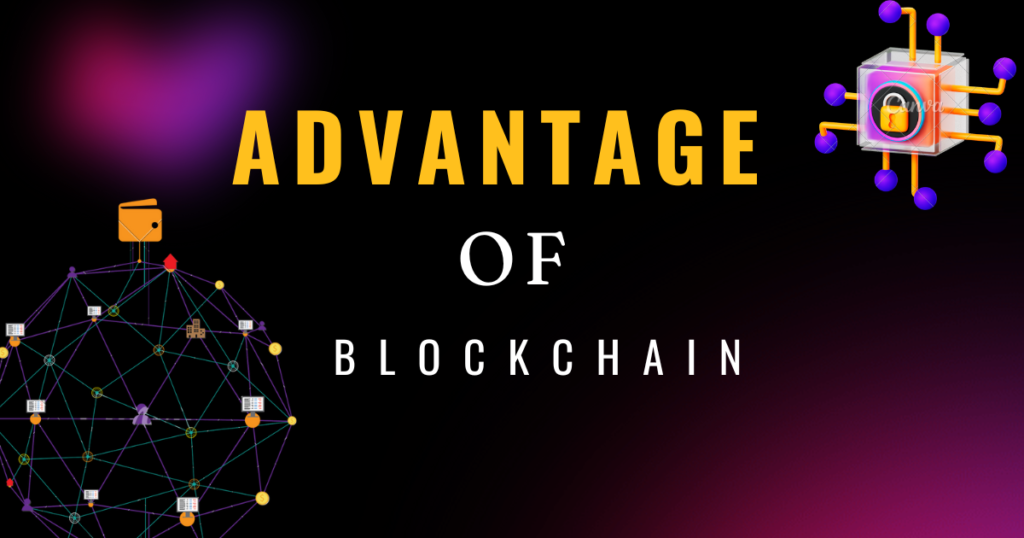Dealing with a supply chain can be a perplexing and testing task for businesses, all things considered. From tracking inventory and shipments to guaranteeing consistency with guidelines, there are various factors to consider with regards to productively moving products from the maker to the buyer. However, on account of advances in technology, especially blockchain technology, supply chain management is being altered in ways that, until recently, were never envisioned.

1. the idea of blockchain technology and how it can reform supply chain management.
Blockchain technology has been causing disturbances across industries as of late, offering a decentralised and secure method for recording transactions and data. Initially created as the fundamental technology behind the digital currency Bitcoin, blockchain has since advanced to have applications far beyond cryptocurrency. One region where blockchain can possibly change operations is supply chain management.
Traditionally, supply chain management has been tormented with difficulties like an absence of transparency, shortcomings, and an absence of trust between the different parties involved. With numerous handoffs and transactions along the supply chain—from producers and providers to retailers and buyers—monitoring goods and guaranteeing their authenticity can be an overwhelming errand.
This is where blockchain comes in. At its core, blockchain is a distributed ledger that records transactions in a secure and transparent way. Every transaction, or block, is connected to the past one, shaping a chain of blocks. This decentralised system guarantees that each party in the network approaches similar data, creating a degree of transparency and trust that was previously challenging to accomplish.
By utilising blockchain technology, supply chain managers can track products from their source to their objective continuously. Every item can be doled out with a remarkable identifier, or a digital finger impression, which is recorded on the blockchain. This takes into consideration the complete perceivability of the item’s excursion, from its assembling cycle to its conveyance to the end customer.
Moreover, blockchain technology can assist with verifying the authenticity and origin of products. With the ascent of counterfeit goods on the rise, shoppers and businesses alike are searching for ways to guarantee the authenticity of the products they are buying. By recording data like the producer, date of creation, and area of beginning on the blockchain, organisations can undoubtedly verify the authenticity of products and identify any fraudulent activities in the supply chain.
As well as further developing discernibility and authenticity, blockchain can likewise smooth out operations and diminish costs in the supply chain. By automating cycles like checks, payment settlements, and agreement authorization through smart contracts—self-executing contracts with predefined rules encoded in the blockchain—organisations can diminish the requirement for intermediaries and further develop efficiency.
2. the advantages of utilising blockchain in supply chain management, like expanded transparency, efficiency, and security.
Blockchain technology offers a wide cluster of advantages with regards to further developing supply chain management. One of the vital benefits of utilising blockchain in supply chain management is expanded transparency. With blockchain, each transaction that happens inside the supply chain is recorded and stored in a secure, decentralised ledger. This implies that all parties associated with the supply chain can approach constant, exact data about the development of goods, starting with one point and moving onto the next.
read more about blockchain here
This expanded transparency not only assists with smoothing out the whole supply chain process but additionally empowers better navigation. By approaching nitty-gritty data about each move towards the supply chain, partners can distinguish shortcomings, bottlenecks, and potential issues significantly more successfully. This eventually prompts quicker critical thinking and better by-and-large execution of the supply chain.
One more significant advantage of utilising blockchain in supply chain management is expanded efficiency. By automating and digitising a considerable number of the manual cycles engaged with supply chain management, blockchain technology assists with reducing desk work, limiting blunders, and accelerating transactions. This implies that goods can travel through the supply chain all the more rapidly and easily, eventually prompting quicker conveyance times and further developing customer fulfilment.
Notwithstanding expanded transparency and efficiency, blockchain technology likewise offers upgraded security for supply chain management. Traditional supply chains are frequently tormented by issues like fraud, counterfeiting, and data breaches. However, blockchain technology provides a secure, unchanging record of transactions that is tamper-proof and impervious to hacking.
Since every transaction is verified and added to the blockchain through a consensus component, it is, for all intents and purposes, unimaginable for troublemakers to alter or control the data. This not only assists with keeping fraud and counterfeit goods from entering the supply chain but additionally safeguards delicate data like customer data and proprietary advantages.
Generally, the advantages of utilising blockchain in supply chain management are clear. Expanded transparency, efficiency, and security are only a couple of the benefits that this technology offers in terms of real value. By tackling the force of blockchain, businesses can smooth out their supply chain operations, diminish costs, and gain an upper hand on the lookout.
3. how blockchain can track and verify the authenticity of products all through the supply chain, reducing the risk of counterfeit goods.
Blockchain technology can possibly change supply chain management by empowering constant tracking and confirmation of products as they travel through the different phases of the supply chain. One of the vital advantages of utilising blockchain in supply chain management is its capacity to track and verify the authenticity of products, accordingly reducing the risk of counterfeit goods entering the market.
Traditionally, tracking the development of products through the supply chain has been a bulky and tedious cycle, frequently depending on paper-based records that can be effortlessly controlled or lost. This absence of transparency in the supply chain makes it challenging for organisations to verify the authenticity of their products and guarantee that they are not being counterfeited.
Blockchain technology resolves this issue by making a tamper-proof digital ledger that records each transaction in the supply chain progressively. Each time an item changes hands, another block of data is added to the blockchain, making a permanent record of the item’s excursion from producer to retailer. This not only gives a transparent and secure method for tracking the development of products through the supply chain, but additionally guarantees that the data is precise and can’t be altered or tampered with.
By utilising blockchain to track and verify the authenticity of products, organisations can altogether lessen the risk of counterfeit goods entering the market. This is especially significant in industries where counterfeit products represent a huge danger to buyer security, like drugs, gadgets, and extravagance goods. For instance, by carrying out blockchain technology, drug organisations can guarantee that their products are certified and have not been tampered with, consequently shielding patients from possibly unsafe counterfeit medications.
As well as reducing the risk of counterfeit goods, blockchain technology can likewise assist organisations with improving the efficiency of their supply chain operations. By incorporating ongoing perceivability into the development of products, organisations can recognise bottlenecks and shortcomings in the supply chain and find proactive ways to address them. This not only assists organisations with reducing costs and working on functional efficiency, but additionally upgrades the general customer experience by guaranteeing that products are conveyed promptly.
Besides, blockchain technology can likewise assist organisations in improving their image notoriety by giving customers more noteworthy transparency into the beginning and authenticity of the products they buy. By checking an item’s blockchain-empowered QR code, buyers can access nitty-gritty data about the item’s excursion through the supply chain, including where it was produced, how it was shipped, and who dealt with it en route. This degree of transparency constructs trust with shoppers as well as assists organisations with separating their products in a serious market.
Taking everything into account, blockchain technology can possibly change supply chain management by empowering ongoing tracking and checking of products all through the supply chain. By utilising blockchain to track and verify the authenticity of products, organisations can diminish the risk of counterfeit goods entering the market, work on functional efficiency, and improve brand notoriety. As additional organisations take on blockchain technology in their supply chain operations, we can hope to see expanded transparency, security, and recognizability in the worldwide supply chain.


